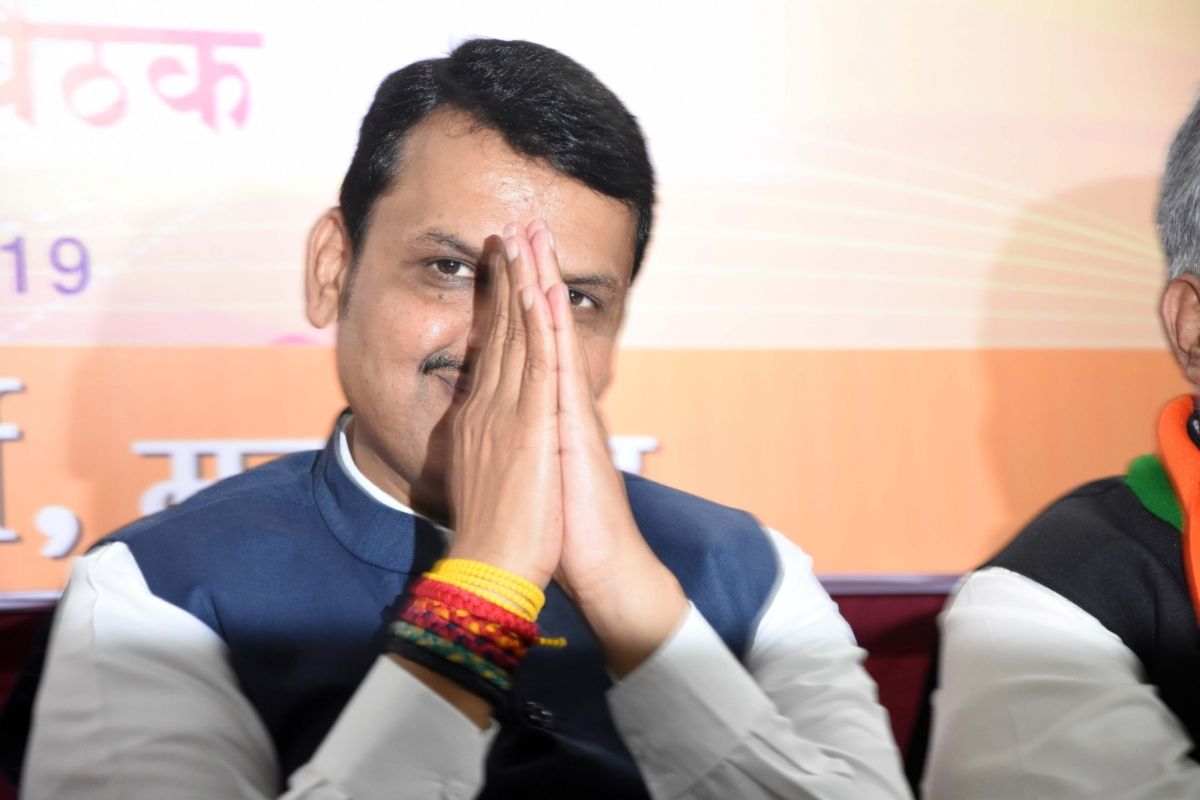Former Chief Minister of Maharashtra Devendra Fadnavis faced a major set back today as the Supreme Court has rejected his plea seeking review of its 2019 judgement as the court asked him to face trial for allegedly failing to bring on record the details of two pending criminal cases against him in the poll affidavit in 2014.
A three-judge bench headed by Justice Arun Mishra, also comprising of Justices Deepak Gupta and Aniruddha Bose said that there is no merit in reviewing the judgement delivered by the apex court in October last year.
Advertisement
“We find no ground to interfere in the review petitions. The same are dismissed,” said the Bench. This order was passed on February 18, but it was made available on the apex court website on Tuesday.
Former Maharashtra Chief Minister Devendra Fadnavis on February 18 told the Supreme Court his fate has been sealed by its earlier order, and the judgement on his election matter could have wider ramifications on the candidates in the electoral fray. Fadnavis insisted to review the verdict in this matter.
The Bench after arguments on the matter had reserved the verdict.
Senior advocate Mukul Rohatgi, appearing for Fadnavis, contended before the top court that this matter had the potential to have far reaching consequences on other candidates in the poll fray and the apex court needed to re-examine its October 1, 2019 decision.
In his submission Rohtagi said that as per Section 33 A (1) of the Representation of the People Act, 1951, there was no requirement to furnish information on criminal case unless charges have been framed by the trial court.
He further added that the court taking cognizance could not become a reason to reveal the criminal case. Rohatgi requested for the stay on the judgement, but the top court did not agree.
The bench observed that the SC will keep the question raised by senior counsel open. “We are not sealing your fate”, said the court citing it will decide this question at the final stage.
Senior council also submitted that candidate can be criminally prosecuted for violating the two conditions — where a candidate has been convicted and not disclosing cases where charges have been framed.
Cheating and forgery cases were filed against Fadnavis in 1996 and 1998, but charges were not framed in either case.
Satish Uke, a Nagpur-based lawyer had approached the local court and asked for criminal proceedings to be started against the then MLA Fadnavis. In his petition Uke alleged that the information about cases against him was not filed by Fadnavis in his election affidavit.
The petition was however dismissed by the local court and its order was upheld by the Bombay High Court.
The top court, in October last year, gave approval to the local court that they can take up the case. Fadnavis was then sent a notice by Nagpur court in November, under section 125A of Representation of People Act, 1951.











